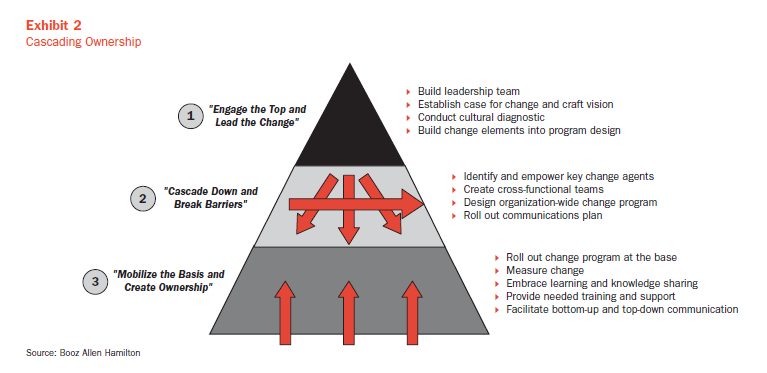When implementing new technology, such as a new CRM system, many organizations have learned the basics of how to select a product or vendor. But what about after the technology is selected? It can be overwhelming to consider the unpredictable changes that will occur among the flow or your organization’s work and even among its culture. However, by taking steps to manage the change, new technology can be integrated into an organization much more smoothly.
David Maxfield, http://www.davidmaxfield.com/
David Maxfield, co-author of Crucial Conversations and Crucial Accountability, states that with change two forces are at play. "Those things like technology, tools, are above the water line," he explains. "But then there is everything below the waterline: the cultural norms, what people do, the internal politics, indifference, passive aggressive followers, all the things you have to do to get it done.” To effectively manage these “below the waterline” factors, it is critical to implement change management, which is a method of applying management principles in a way that smooths transitions that occur due to change in an organization’s processes.
One principle espoused by change management is the importance of creating ownership over the new technology. Booz Allen Hamilton, a global strategy and consulting firm, states that everyone in the organization must not only buy-in to the new technology, but actually feel ownership and accept responsibility for making the change happen in whatever way they can. For an arts organization implementing a new CRM system, this could take the form of involving the most junior employees in developing the implementation plan or giving them responsibility for a certain part of the implementation.
Booz Allen Hamilton, Ten Guiding Principles of Change Management, 2004
Another principle of change management is that the organization must craft an effective and credible case for why the change is important. The theory behind this is that employees at every level will question why the technology is being implemented, how it will change the organization, and what their individual role is in the change.
To implement this principle, consider holding a kick-off meeting to announce the new technology and explain how the new technology will be beneficial to the organization in the long run. In addition, holding regular open meetings or dedicating a portion of full staff meetings to discussing the implementation--or at least sending regular updates via email--may be crucial in keeping everyone on-board and focused on the vision.
At the core of change management is the idea that while the selection and implementation of new technology is an important step in moving forward, change will only be created when everyone in an organization understands their role and believes in the importance of the new technology.
Has your arts organization successfully implemented new technology or another organization-wide change? What were the keys to success? Share your advice in the comments section below!




